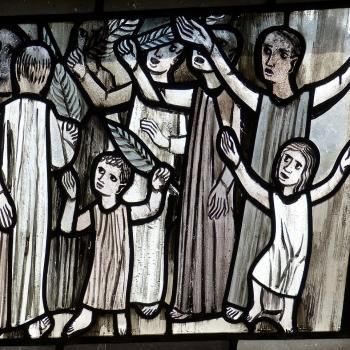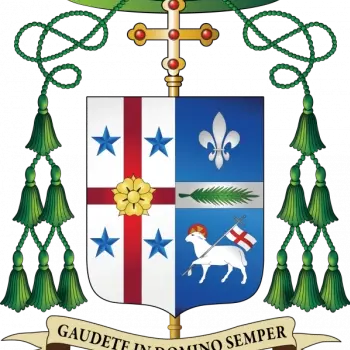I am bound by the Scriptures I have quoted and my conscience is captive to the Word of God. I cannot and I will not retract anything, since it is neither safe nor right to go against conscience. I cannot do otherwise, here I stand, may God help me, Amen.
Martin Luther, April 18, 1521, Diet of Worms
The world of the early sixteenth century could accurately be described as a religious system of corruption that had as its goal the growth of a Christian "industry" built on the backs of peasants. The current talk of income inequality holds no comparison to the economic deprivation in this era, fueled by religious persecution and motivated by a desire for political control. Ironically, recent research has revealed that the culture of this time was anything but anti-religious. To the contrary, religion was big business.
The Apostle Peter's successor as the father (or "papa" or "pope") of the Roman church was believed to be the vicar (representative) of Jesus Christ. The pope was, therefore, a primary channel of God's grace to the world. Through him came the power to ordain bishops who, in turn, would ordain priests who would, in turn, manage the Christian empire. God's grace was known through the seven sacraments: baptism, confirmation, the Mass, penance, marriage, ordination and last rites. Participation in these actions became the path to receiving divine grace.
The Mass was performed in Latin. Most who attended did not understand one word that was said. Worse, most of the professional priests did not understand what they uttered before the people. For many of them, it was easier to learn the sounds of the words by rote than learn a new language that was as unfamiliar to many of them as it was to the people who heard them speak. The words of the Bible remained hidden in obscurity until courageous martyrs stepped forward to speak the truth.
A misconception surrounds the exact date of the Protestant Reformation as it is commonly thought to begin on Oct. 31, 1517. To be sure, Martin Luther's 95 theses on the Wittenburg door quickly gained traction in the new world of the printing press and the overall unrest surrounding the unjust practices of the Church. Long before Luther's dramatic appearance on the world stage, however, tremors of reform had been felt through the lives of people who dared to read the Bible in English to "commoners." Robert Grosseteste (1168-1253) became bishop of Lincoln in 1235 and believed that the chief duty of the "clergy" should be to preach the Bible—not give the Mass. He preached in English, not Latin, and clashed a number of times with the pope.
In the early 1300s, John Wycliffe openly stated that the Bible (not the pope) was the supreme authority for the Church. This created a huge backlash that ultimately ended in Wycliffe being banished to obscurity until his death in 1384. Jan Hus, the rector of the University of Prague, became the champion of Wycliffe's teaching. Hus challenged the authority of the pope to issue indulgences (a gift of merit by the pope to free imprisoned souls in purgatory) and reaffirmed the primacy of the Bible as the only authority for the Church. He was condemned to death as a heretic in 1415.
By the time Luther stood before Charles V, the Holy Roman Emperor, on April 18, 1521, and uttered his famous statement (quoted above), the thunder of reformation had been heard and was gaining momentum. Slowly the grip of the papacy was loosened, as many of the most nefarious teachings of the Church were shown to be erroneous. Luther's grand message was that a person could stand confident before God on the basis of "merely" trusting God's acceptance of Jesus' work in their behalf by faith. And so works were replaced by words that were founded by the Word of God. By faith alone a person was justified before the judgment throne of God by believing it was so on the basis of Holy Scripture alone.
Most modern Protestants who read the history of the Reformation cannot fully grasp a world without the Bible. Today, however, the reformation which must come is not one void of the presence of the Bible. Today's scandal is that the Bible, while widely available, is seldom read at all, let alone understood, by most who listen to preaching every week. For many of them, it is as if the Latin Mass is still in play.
In Kenda Creasy Dean's book, Almost Christian: What the Faith of our Teenagers is Telling the American Church, it seems that the problem is far worse than anyone imagined. The National Study of Youth and Religion discovered that "the majority of American teenagers, who disproportionately call themselves mainline Protestant or Roman Catholic, harbor an attitude toward religion that one researcher described as 'benign positive regard.' While teenagers (and young adults) agree that religion is good, even important, they cannot explain why this is so, and many of them believe religion makes no difference to them personally. Most religious communities' central problem is not teen rebellion, but teenagers' 'benign whateverism.'"





